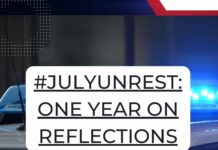The student-led protests that began in 2015 were organised and sustained largely by the actions, voices and bodies of womxn, queer and trans* people. However, many feel their needs, beyond racial policy in universities, have not been addressed. KHETIWE MBONGWA spoke to some LGBTQ+ student activists about their advocacy for trans* rights and their thoughts and experiences within student movements.
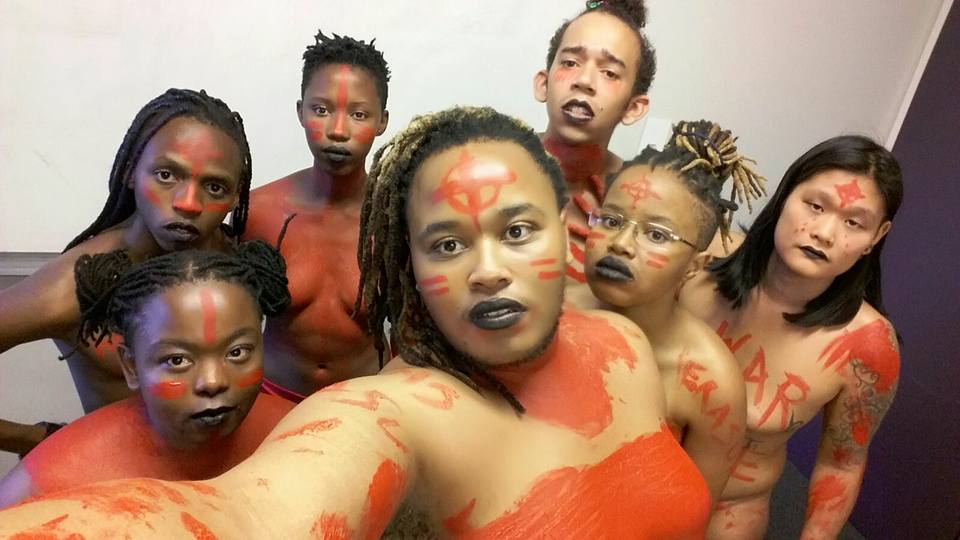
What has your role been in student movements?
The Trans Collective is a body of trans* people who joined student movements at UCT out of their own accord in 2015. However, what brings us together as a collective is our identity as gender diverse people and the resulting alienation. We have, together with general movement organising, attempted to add content to decolonisation by emphasising a more nuanced understanding of the colony which manifests at UCT and how it is affecting us in various ways. This has been done through passive means such as dialogues and discussions. However, since realising the resistance against this political shift, we are exploring other ways of bringing our movements in accordance with our understanding of decolonisation and the work that our movements should be doing. An example being the disruptive intervention that we staged at the RMF exhibition recently.
How would you describe the treatment of trans* people in student movements?
Exhausting and draining, macroaggressions, intimidation, exclusion, lack of support, invisibility, antagonism, dismissal.
Do you feel as if trans* people have significant enough leadership positions in student movements?
As the Trans Collective, we do not necessarily subscribe to “leadership” as a construct. However, we, both as individuals and as a collective have had influence at various points in the project. In addition to consistently availing ourselves to the movement, there have been several shifts that can be directly linked to the presence of trans* people within the movement. For example, our movement has now institutionalised the use of non-binary and gender diverse language, committed itself to intersectionality, and has some knowledge of the difference between gender, sex and sexual orientation. Unfortunately, this important role is often downplayed at least and erased at most within the movement.
What do you mean when you say trans* bodies are political?
We are ascribing a language to the contested nature of our bodies and the lives that they carry. Trans* bodies and lives have always been up for public contestation. The medical fraternity is confused by our bodies, the psychological fraternity is confused about how we deal with our bodies, many trans* people feel a lot of anxiety about their bodies, our bodies are used to discount our trans* identities, our bodies are often made sites of physical and sexual violence, the public is often confused, intrigued and disgusted by our bodies, many people are forbidden to desire our bodies, people fetishise our bodies, people tokenise our bodies. This has brought us to the understanding that there is an inherent power within our bodies that allows us to both disrupt and empower and to both destroy and build up. Therefore, we have resolved to use our bodies as weaponry in communicating or inspiring communication about politics. We use them to take up space, to disrupt spaces, to confront power and to reclaim our dignity and humanity.
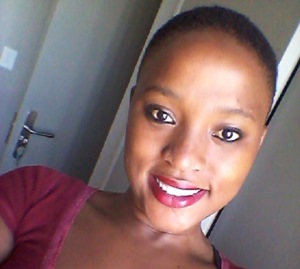
Do you feel as if your sexual identity has ever affected your status or position of power?
No, I’ve only been openly bisexual since the end of 2014 and before then the only hindrance was the fact that I am a womxn. After I came out, people were trying to figure out if I act a certain way because I’m bisexual or because I’m a womxn and I have weird emotions. People were being strange, especially in my political spaces. [Men] were always trying to figure out why I act the way I do, or if I was trying to emasculate them because I could take their [partners] too, it’s really weird. Many people didn’t change but they were a few who said I acted tough because I was bisexual.
Do you think that UPrising would make provisions for LGBTQ+ people to make their own space within it?
Yes, within my movement I think it could happen and I think it’s going to happen. Generally speaking, political movements let it happen but it’s not really a safe space. They are given space to go and speak amongst themselves and then come back and discuss.
What would a decolonised and inclusive institution look like at UP?
Curriculum wise, especially with the soft sciences, for lack of a better word, it would be more Afrocentric. We’d focus more on African philosophy, leadership and law because they exist. We would touch on Western ideals but the main focus would be African thought. In the hard sciences like maths and science, the theory is universal but students should be trained to apply knowledge specific to our country. That’s what decolonised education looks like to me – education that is more centred on South Africa. Even with the Afrikaans Must Fall movement we are trying to create an environment that includes South African culture and that isn’t so centred solely on Afrikaans culture and masculinity. All people should feel included and have a safe space.
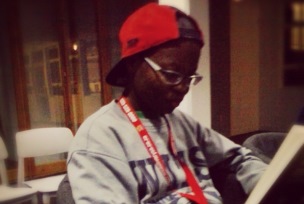
How would you describe your position and role in the Fees Must Fall Movement?
I was a part of the small group that started the movement at Wits; I was a part of the SRC based task team that was involved in mobilising people for the big day on October 14th. When we started planning it we never really thought that it would blow up, we just thought that it would happen for like two hours, pass the memorandum and then it would be over.
How were you so instrumental in the movement, while most LGBTQ+ people felt marginalised?
I don’t really know. When it started, the main objective was really just Fees Must Fall then the conversation around making the movement more intersectional arose once more people started joining the movement and felt excluded because their experiences weren’t really being taken into account. As for me, I also started feeling alienated a bit once I realised the movement was failing to be inclusive. Overall though my experiences were not the same as other queer people in the movement.
What is Fees Must Fall 2.0 and how does it differ from the original movement?
As soon as we started talking about intersectionality we started to become more radical. Before we were more passive, the direct action was peaceful. We also had more numbers in Fees Must Fall 1.0 and we were able to better pressurise the state and management. After we came back from December holidays we didn’t have the numbers we had before; peaceful protest and direct action wasn’t getting the response we wanted so that’s when we began to change.
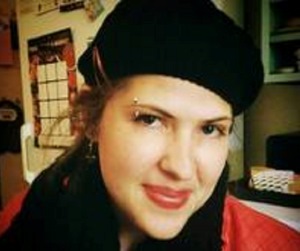
Do LGBTQ+ people play a significant role in the organisation of mass action?
A huge role, because most of us are actually queer womxn and the best part is that there is a majority of black queer womxn – I’m sort of an outlier I guess. I did not consider myself a leader in the movement because of the privilege that I hold, I was much more of a doer and if someone needed a body to go and sit by a gate I would go and do that.
Was there any form of intimidation or violence against LGBTQ+ people?
Ya, in particular during the start of Fees Must Fall, it was often the case of queer womxn doing the hard work and when they wanted to raise the issue of how we actually approach things and how to integrate the concerns of queer people and womxn, it was completely shut down. People thought that it was not the time and that it wasn’t the struggle; I think that’s eventually what did cause breakaways. People couldn’t abide by the dismissive non-intersectional approaches that a lot of people were taking.
Do you think hierarchies exist within the LGBTQ+ community?
Well if we want to put into a hierarchy, gay white men are the top and then the worst treated and accepted within the queer community are trans* people. There is a much greater presence on campus of black trans* womxn within decolonisation movements and the Fees Must Fall Movement than in mainstream LGBTQ+ spaces dominated predominantly by white males.
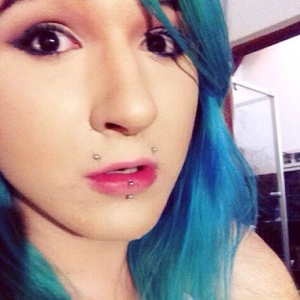
What kind of activism do you do?
Most of the work I do is with my group that I founded called CTRL ALT GENDER. We provide a safe space for trans* people across Gauteng. We try and have support meetings, we have resource lists, we connect people to safe doctors and safe therapists. I work with Activate Wits and Wits Pride, speaking for them helping them plan events.
What is your vision for your institution and society as a whole?
I think for me as a trans* person my focus is the disruption of heteronormative ideas, fundamentally how that would look is breaking down the idea that sex and gender are binary and throw out the practice of assigning a sex to infants, which affects trans* and intersex people. Also breaking down the ideas that a gender is rigid, or that gender can be assigned, that gender is binary.
I would go as far as to say have society look beyond [gender] and get rid of [gender]; there’s a lot of radical feminists and queer anarchists who advocate that. I don’t know if that’s the way forward or what that would look like, but for me it would be a step by step process. In a South African context first and foremost we need to create a trans* community. I mean it’s there, trans* people are there but we don’t have community just because of the extreme danger and extreme prejudices we face in South Africa. We need to create a safe space just for us in South African society. Also educating people, doctors etc.
Author’s note: 1.Womxn is the alternate spelling of the word woman or women, adopted by intersectional feminists who assert that the alternate “womyn†spelling is too narrow a term, excluding trans* womxn, womxn of colour and other womxn identifying with feminist movements. The “x” also identifies womxn as autonomous beings from men, not offshoots of them.
2. Trans*: Trans with an asterisk is an umbrella term used to describe all non-cisgender people within the gender identity spectrum, including but not limited to, genderless, bigender, non-binary and trans men and womxn.
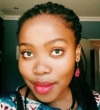

![Sandile-Ndelu-Trans-collective [slider]](https://www.thedailyvox.co.za/wp-content/uploads/2016/03/Sandile-Ndelu-Trans-collective-1.jpg)


